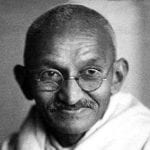 Weird Stuff
Weird Stuff  Weird Stuff
Weird Stuff  Mysteries
Mysteries 10 Tragic Disappearances and Deaths in Joshua Tree National Park
 History
History 10 Ways Childhood Really Sucked in the Old West
 Music
Music 10 Name Origins of Famous Bands from the 1990s
 Religion
Religion 10 Biggest Turnarounds by the Catholic Church
 Weird Stuff
Weird Stuff 10 Unbelievable Times Laws Had Unintended Consequences
 Humans
Humans Ten Historic Women Who Deserve Way More Credit Than They Got
 Movies and TV
Movies and TV 10 Films That Spawned Major Lawsuits
 History
History Ten Times Towns Were Wiped Off the Face of the Earth
 Creepy
Creepy 10 of the Most Disturbingly Haunted Public Houses in the UK
 Weird Stuff
Weird Stuff 10 Niche Subcultures That Are More Popular Than You Might Think
 Mysteries
Mysteries 10 Tragic Disappearances and Deaths in Joshua Tree National Park
 History
History 10 Ways Childhood Really Sucked in the Old West
Who's Behind Listverse?

Jamie Frater
Head Editor
Jamie founded Listverse due to an insatiable desire to share fascinating, obscure, and bizarre facts. He has been a guest speaker on numerous national radio and television stations and is a five time published author.
More About Us Music
Music 10 Name Origins of Famous Bands from the 1990s
 Religion
Religion 10 Biggest Turnarounds by the Catholic Church
 Weird Stuff
Weird Stuff 10 Unbelievable Times Laws Had Unintended Consequences
 Humans
Humans Ten Historic Women Who Deserve Way More Credit Than They Got
 Movies and TV
Movies and TV 10 Films That Spawned Major Lawsuits
 History
History Ten Times Towns Were Wiped Off the Face of the Earth
 Creepy
Creepy 10 of the Most Disturbingly Haunted Public Houses in the UK
10 Historic Events Friendly Countries See In Totally Different Ways
The saying goes that history is written by the winners, but what happens when none of the winners can agree on what to write? Over the centuries, our modern world has been shaped by conflicts, international treaties, and sporting events that have left a mark on the nations they’ve involved. While you’d expect two enemies (like, say, Iran and Israel) to have different interpretations of such events, you might be surprised by how many friendly nations have totally different takes on shared moments in their pasts. Moments like . . .
10 The British Barely Remember The Revolutionary War
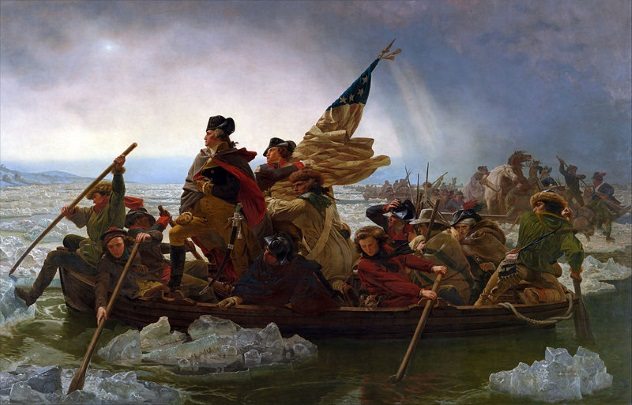
If you went to school in the US, you were taught about the Revolutionary War. The 18th-century punch-up between plucky team USA and the might of the British Empire is America’s founding myth, the inferno from which the United States was born. George III is the villain, up there with the Kaiser as American history’s Big Bad, and independence is the grand finale. In the years since, the British may have gone from enemies to friends, but surely no one’s doubting it was a big deal for both nations.
Actually, the British are. Despite it being the moment they lost one of their major colonies, Brits today barely remember the Revolutionary War at all.[1]
The trouble is, losing the war actually wasn’t much of a setback for the British. Their empire kept on growing, and the Industrial Revolution kept on happening, so history classes today barely bother to mention it. Where it is taught, it is usually as a prelude to the French Revolution, a much closer event that affected the whole of Europe way more than some argument about taxes on another continent.
9 Both Canadians And Americans Think They Kicked Butt In 1812
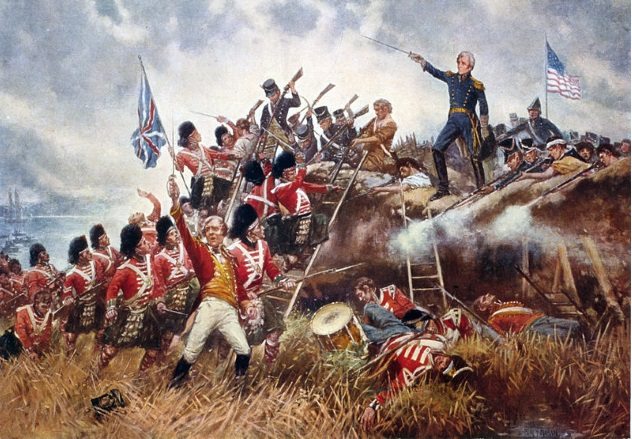
The US and Canada are basically siblings, with America the adventure-minded older brother and Canada the laid-back one still chilling in college. Not so in 1812. That was the year the US and Canada (then a British colony) decided to go toe-to-toe. The resulting war was messy and pointless and didn’t really result in a victory for anyone. Somehow, this dumb draw wound up becoming a founding myth for both nations.[2]
As Smithsonian details in the link above, both Canada and the US today celebrate the War of 1812 as a time they kicked butt. Americans remember the Star-Spangled Banner still fluttering after a heavy night’s bombardment and are taught that the war was the moment the US showed the British they were a serious nation. Canadians, meanwhile, are taught it was the time they successfully beat up their older brother after team USA tried to invade them.
But what about the British, the guys who ruled Canada and helped them burn down the White House? Once again, they barely remember it. They were too busy kicking Napoleon’s backside to pay much attention. Speaking of which . . .
8 The British Think They Defeated Napoleon; The Russians Beg To Differ
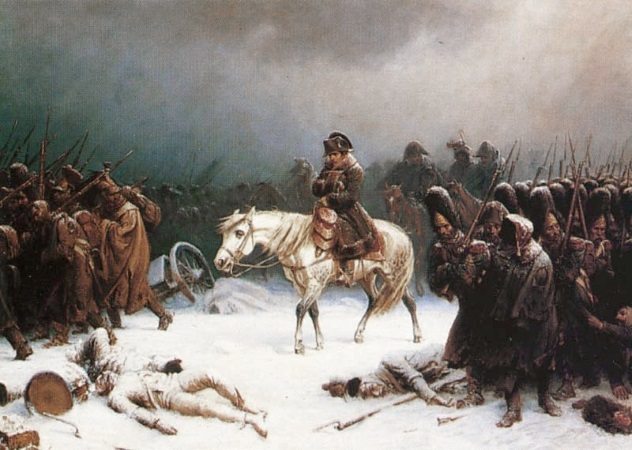
It may be a bit of a stretch to call the UK and Russia friends, but they’re certainly not enemies. Nonetheless, their official histories disagree over the story of Napoleon. Depending on what country you were schooled in, Napoleon’s defeat was either thanks to Wellington’s genius or the sacrifice of thousands of Russian soldiers.[3]
Before Napoleon was defeated at Waterloo in 1815, he’d been defeated at Leipzig in 1813. This earlier defeat was entirely down to two things: Napoleon’s hubris and Russia. Only a year earlier, Napoleon had been de facto ruler of Europe. Then he decided to attack Russia, and everything went to Hell.
Over half a grueling year, his Grande Armee went from 650,000 men to under 100,000, as Russian winter and soldiers did their worst. The French soon went into retreat, only to be chased across the whole of Europe by vengeful Russians. It was this relentless pressure that caused the Emperor’s 1813 defeat and exile to Elba. While the Brits would say his second defeat was the one that sealed it, the Russians see Waterloo as the unnecessary sequel to their original smackdown.
7 The Americans Think They Defeated The Japanese; The Russians Beg To Differ
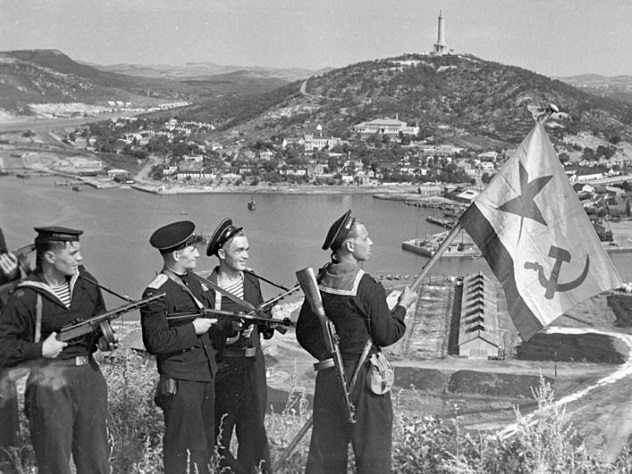
While there’s a good argument to be had over who really stomped Nazi Germany, the Allies or Soviets, we tend not to think that such questions exist over Imperial Japan. The endgame of World War II saw the Allied forces flatten Japan, culminating in the atomic bombings of Hiroshima and Nagasaki. Japan’s top brass met the day of the Nagasaki bombing to discuss surrender. Surely this was a true American victory?
Well, there’s another school of thought that doesn’t get aired much in the States—one that says the real reason Japan surrendered was less because of A-bombs and more because the Soviet Union had decided to get involved.[4]Stalin declared war on Japan on August 8, 1945. By the morning of August 9, Russian troops had stomped the Japanese in Manchuria and invaded Sakhalin Island. Within ten days, they would have been ready to swarm over Hokkaido before hitting mainland Japan itself. Hence the Japanese surrender. While not taught in mainstream Russian schools, this view certainly has its adherents in the Russophile world.
6 Both The British And The Germans Claimed Victory At Dunkirk
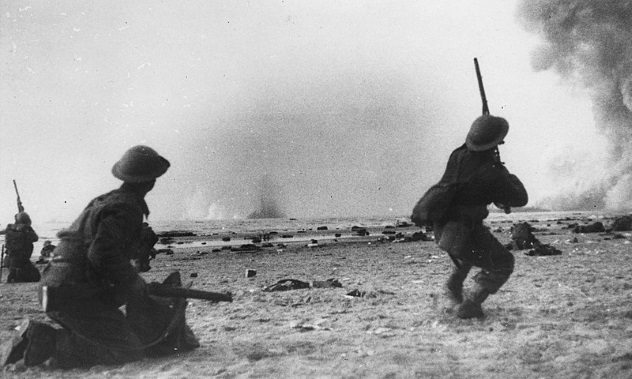
With Chris Nolan’s Dunkirk currently in cinemas, plenty of attention is being paid to this pivotal moment in World War II. The British have long seen it as an excellent example of snatching victory from the jaws of defeat, and the facts bear this out. Churchill expected only 30,000 British soldiers to be saved; 330,000 was the actual figure. While nearly 70,000 British troops were killed, nearly 30,000 Germans died with them. What should have been Britain’s humiliation wound up being the moment the war began to turn against Germany.
Yet things weren’t so clear-cut at the time. Incredibly, both the Allies and the Axis claimed Dunkirk not only as a victory but as one that would go down in history as a shining example of their side’s glory.[5]Hitler himself described Dunkirk as “the greatest German victory ever.” At the same time, The New York Times was proclaiming “It [Dunkirk] is victory.” This goes beyond mere propaganda. Both the Axis and the Allies genuinely thought this evacuation was their greatest victory. While the German view has understandably died out, it’s still interesting to hear such conflicting hot takes.
5 The Vietnamese Don’t See The Vietnam War As Especially Significant
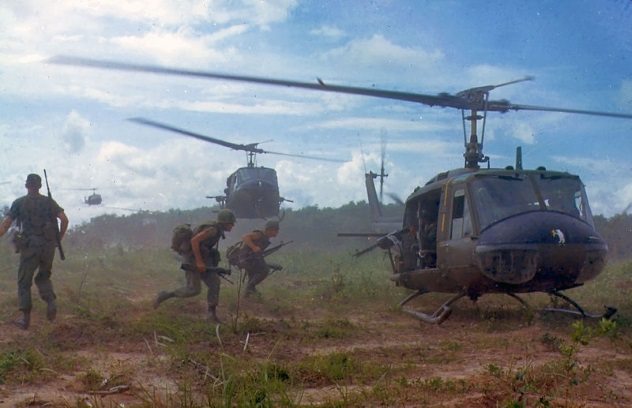
America’s involvement in Vietnam was an epoch-shaking catastrophe. Nearly 60,000 Americans died, along with uncountable millions of Vietnamese. In the US, it ignited the counterculture and spawned a period of soul-searching that lasted decades. Even now, with friendly relations reestablished with Vietnam and the Iraq War the new holder of the “least popular war” title, it still casts a long shadow.
So, given all that, what do you think the Vietnamese make of it? The answer is: “Not much.”[6]
The American War, as it’s called in Hanoi, was devastating, but it’s just one of many wars Vietnam became embroiled in during the 20th century. They were invaded by the Japanese in World War II. They battled the French almost as soon as the Japanese left. No sooner had the American War ended than they had to invade Cambodia. They even got into a war with China in 1979. Amid all this carnage, what we call “the Vietnam War” was just another chapter in a long-running saga called “Vietnam getting super-killed.”
On top of that, there’s a culture of ignoring the war among Vietnamese who didn’t live through it. Many under-30s today are almost militantly uninterested in the topic.
4 Germans Don’t Care About The 1966 World Cup
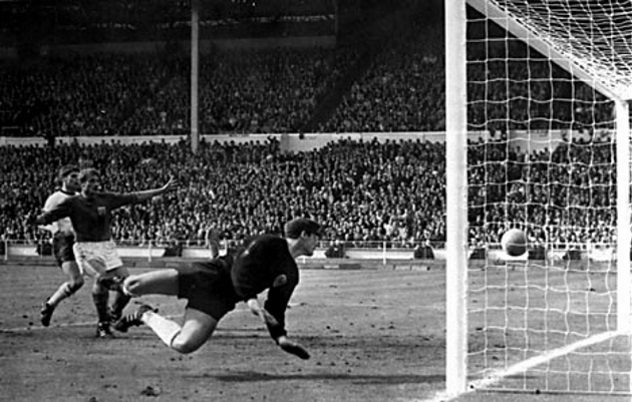
Moving away from war for a moment, let’s look at Britain and Germany’s third most famous battle: the 1966 soccer World Cup. If you’ve ever set foot in Britain, you’ll know what a big deal this is. England’s 4–2 defeat of West Germany is the stuff of legend. Every four years, clips of it are trotted out on British TV. A 1996 song about it, “Three Lions,” routinely hits the charts every time England enters a soccer tournament. As parts of the national psyche go, it’s up there with Dunkirk and the Blitz.
There’s only one problem. The Germans barely remember it.[7]
While the British still celebrate defeating their bitter soccer rivals, the Germans aren’t even aware they have a rivalry. German soccer fans traditionally hate the Dutch and even look on the English as almost friends. As for the 1966 final itself, it pales in Teutonic memory against West Germany’s 1954 World Cup win, seen today as a defining moment in Germany’s stepping out from under the black cloud of Nazism.
3 Britain Sees Exiting India As A Success; India Sees It As A Prelude To Catastrophe
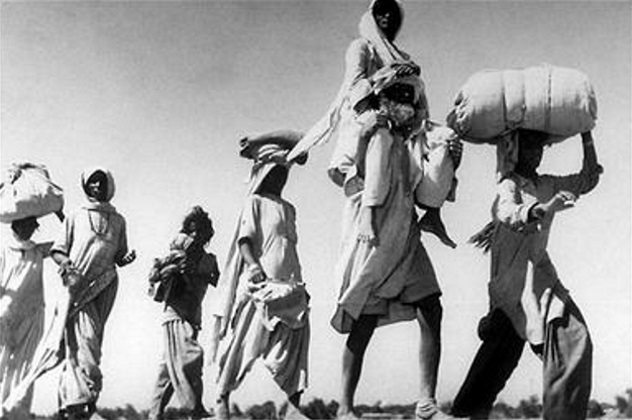
When the time came for the old European powers to give up their colonies, they had two choices. Go peacefully, or go out in a bloody war. The French, as we saw with Vietnam, generally chose the latter. The British, to their credit, generally chose the former. When the Empire pulled out of India, it was with barely a shot fired and only seven casualties. Compared against the dismal records of other European powers, decolonization of India is generally seen as a British success.
In India and Pakistan, some see it a little differently. They hold Britain’s swift exit accountable for the bloody horrors of Partition.[8]
The British drew up the new borders separating Hindu India from Muslim Pakistan, but they didn’t publish them until a day after independence. Some think mistakes like this fanned the flames of sectarian violence that gripped the subcontinent. And you better believe Partition was brutal. 15 million were displaced, and up to two million were killed in levels of violence not seen again until Rwanda. Even Indians who don’t blame the British can find it difficult to think about the Empire’s exit without the black cloud of Partition hovering over it.
2 Turkey’s Take On The Armenian Genocide Is Very Different From Its Allies’

In 1915, the collapsing Ottoman Empire used the cover of World War I to launch the 20th century’s first extermination campaign. Using tactics similar to Nazi Germany, the Empire systematically slaughtered 1.5 million Armenians.
Known as the Armenian Genocide to historians, it probably comes as no surprise to learn that modern Turkey has a different view of it than its allies in Europe and the Americas. But it may surprise you to learn in what exact way that view differs. In 2014, Turkish journalist Bayraktar Bora summed up the Turkish position in an article for Euronews. He argued that while Turks believe the large-scale slaughter of Armenians happened, they don’t believe it was any worse than what was happening to them at the same time.[9]
Between 1864 and 1922, this view goes, 4.5 million Ottoman Muslims were killed. During World War I, many more died as Russia conquered their territories, while another five million became refugees. In the Turkish telling, their campaign against the Armenians was shameful but has to be viewed in the context of a war where many sides were committing equally shameful acts, often against Turks.
1 Britain And France Think They Took A Principled Stand For Poland; Poland Thinks They Betrayed Them
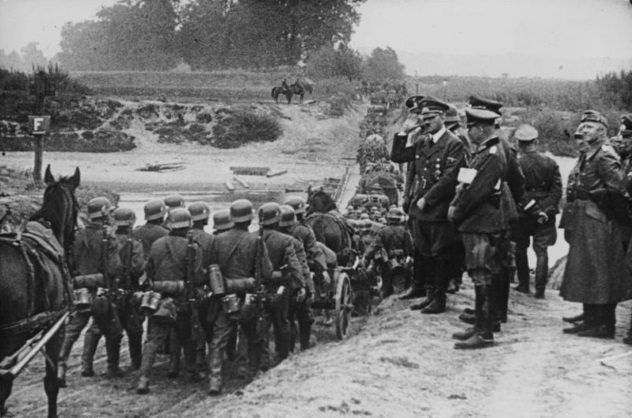
On September 3, 1939, France and Britain jointly declared war on Germany. The two countries had a pact with Poland, which Axis forces had invaded two days earlier. After letting lesser nations like Czechoslovakia get gobbled up, the invasion of Poland is when the Allies finally put their feet down and stood up to Hitler. If either Brits or French think about that moment today, they probably assume Poland was grateful they joined in.
They’re wrong. Many in Poland think the two countries betrayed them.[10]
This is a view that crops up uncomfortably often in Poland, including in respectable places like Warsaw’s Uprising Museum. Rather than seeing France and Britain’s stands as principled, it sees them as fair-weather friends who were happy to make some noises but didn’t supply arms, actually attack Germany, or do anything to stop Poland from getting conquered and over 65,000 Poles from getting killed (not to mention the millions who later died under Nazi and Soviet occupation). While it’s certainly not the only view in Poland—many still consider the Brits heroes—it does highlight what a pesky business interpreting history can be, even among friends.
Read more disputed ideas about history on 10 Controversial Alternative Views Of Historical Events and 10 Insane Attempts At Rewriting History.



